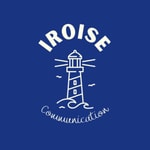GovDiscovery AI Podcast with Mike Shanley – Details, episodes & analysis
Podcast details
Technical and general information from the podcast's RSS feed.

GovDiscovery AI Podcast with Mike Shanley
Mike Shanley
Frequency: 1 episode/14d. Total Eps: 51

Recent rankings
Latest chart positions across Apple Podcasts and Spotify rankings.
Apple Podcasts
🇺🇸 USA - nonProfit
13/07/2025#95🇨🇦 Canada - nonProfit
23/06/2025#98🇬🇧 Great Britain - nonProfit
22/04/2025#95🇬🇧 Great Britain - nonProfit
21/04/2025#86🇬🇧 Great Britain - nonProfit
20/04/2025#79🇬🇧 Great Britain - nonProfit
19/04/2025#64🇬🇧 Great Britain - nonProfit
18/04/2025#48🇬🇧 Great Britain - nonProfit
17/04/2025#37🇬🇧 Great Britain - nonProfit
16/04/2025#21🇫🇷 France - nonProfit
14/04/2025#88
Spotify
No recent rankings available
Shared links between episodes and podcasts
Links found in episode descriptions and other podcasts that share them.
See all- https://www.instagram.com/
5028 shares
- https://airtable.com/
117 shares
- https://www.unicefusa.org/
27 shares
- http://www.konektid.com/
26 shares
RSS feed quality and score
Technical evaluation of the podcast's RSS feed quality and structure.
See allScore global : 58%
Publication history
Monthly episode publishing history over the past years.
Ep 32: USAID Market Chat with Christy & Chuck
Episode 32
mardi 10 septembre 2024 • Duration 30:39
Konektid Chief Operating Officer, Christy Hollywood, and CEO of Pope International and former Senior USAID staff member, Chuck Pope, discuss key trends in the USAID market and the impact of the upcoming election. The discussion included insight on USAID solicitation delays; localization; new partners and barriers to entry into the USAID Market; and the potential impact of the election on USAID.
QUOTES
4:42: “USAID is continuing to broaden their definition of what local inclusion and new partners look like. Also starting to make sure missions have access to ways to engage with local organizations more systematically”. – Christy Hollywood
5:42: “We’re seeing both USAID and implementing partners look at capacity strengthening beyond just compliance and proposals, which is a really nice change, especially as USAID continues to try to lower barriers to entry. – Christy Hollywood
6:47: “Whatever happens, localization is here to stay…it makes sense.” – Chuck Pope
BIOGRAPHY
Christy Hollywood: Christy Hollywood supports Konektid clients and consultants with skills honed during 20+ years of leadership in international development, professional services, and consulting organizations. She led a successful consulting firm of her own for 11 years. Earlier, she served as Vice President for BD of Cardno (a large USAID and MCC contractor, since acquired) and held pivotal business development roles at KPMG’s Emerging Markets Group, RTI International, PATH, as well as Fidelity Investments and Noblis.
A recognized expert in business development consulting, she’s authored several articles and is five-time invited presenter at international conferences on proposal management, competitive intelligence, and business development.
Chuck Pope: Charles S. “Chuck” Pope is a recognized global leader of acquisitions and agreements and is a formerly commissioned Foreign Service Officer and warranted senior Contracting/Agreement Officer for USAID. Chuck is a development professional with over a quarter century of experience on four continents working for the US Government and implementing partners (contractor/recipient).
Ep 31: Chemonics President & CEO on the Aid Market: Jamey Butcher
Episode 31
mardi 27 août 2024 • Duration 01:01:03
Welcome to The Aid Market Podcast, where international development and humanitarian aid organizations connect to learn about funding trends and market insight. Join us as we hear from foreign aid leaders with USAID and other large donors, with updates and insight on their work. We explore topics including localization, artificial intelligence, proposal and grant funding best practices, and analyze data sources like the USAID Business Forecast.
The Aid Market podcast is your comprehensive guide to positioning your organization for success and securing vital funding from USAID and other foreign aid donors. Each episode features in-depth conversations with esteemed guests, including current and former Senior USAID officials, executives from prominent foreign aid partner organizations, and influential thought leaders in the field. Together, we delve into the pressing issues of international development and humanitarian aid, shedding light on the latest trends, strategies, and best practices. Stay informed and gain a competitive edge as we explore key topics such as funding strategies, donor priorities, partnership opportunities, and effective approaches to navigating the complex aid landscape. Our podcast equips you with the knowledge and tools necessary to make informed decisions and unlock new avenues for funding. The Aid Market Podcast is your trusted and comprehensive source for actionable insights and expert advice. Tune in now and join us on this journey to maximize your organization's potential and make a lasting impact on the global stage.
ABOUT THE HOST: The podcast is hosted by Mike Shanley, Founder and CEO of Konektid International and AidKonekt Data, the leading USAID partner support firms that help clients to grow their USAID funding portfolios. Mike has nearly two decades of experience in working with USAID projects and funding opportunities. His USAID funding expertise has been recognized by the largest aid and development associations, partners, and conferences, including by USAID, Devex, British Expertise International, AidEx, and by the Society for International Development-US where he also serves as Board Member. Konektid International Konektid has a decade of experience supporting new and established USAID partners to accelerate and streamline their business development work.
Konektid’s global team of seasoned USAID market specialists can provide surge support for your USAID proposal development, design and support your USAID market entry or growth strategy, and support other USAID partnering needs to help your team better work with USAID. AidKonekt Data AidKonekt is the trusted funding intel software for USAID partners. AidKonekt allows partners to easily monitor funding changes and track their pipeline. It also streamlines USAID market intel research, capture reports, competitor insight, and much more. Accelerate your USAID partnering with AidKonekt today!
Websites: Konektid International: www.konektid.com AidKonekt Data: https://www.aidkonekt.com/usaid-biz-dev Connect with Mike Shanley: https://www.linkedin.com/in/konektid-usaid-specialists/ The Aid Market Podcast, foreign aid, funding trends, market dynamics, USAID, foreign aid donors, international development, humanitarian aid, funding strategies, donor priorities, partnership opportunities, aid landscape, podcast, actionable insights, expert advice, maximize organization's potential, global stage.
Ep 22: USAID Proposal and Business Development Trends with Konektid International
Episode 22
vendredi 12 avril 2024 • Duration 28:46
Today’s episode features Chief Operating Officer, Christy Hollywood and Manager, Olivia Tisa from the Konektid International team. This discussion focuses on various trends in the USAID funding market, including business development, small business expansion, budget updates, and proposal trends. Christy highlights the importance of transparency in contract mechanisms and discusses budget cuts and increases in different funding areas. Olivia mentions opportunity and changes in proposal presentation, emphasizing the significance of go/no-go decisions and small business opportunities. The team also touches on the impact they are seeing from AI tools and the upcoming small business conference. Join today’s conversation for an inside look into Konektid International’s work and trajectory for 2024.
IN THIS EPISODE:
-
[1:00] Christy Hollywood discusses Konektid’s market trends, budget, and business developments in the USAID’s funding market.
-
[4:27] Olivia Tisa shares USAID proposal trends for this spring and how they are similar and different from last spring.
-
[5:45] QASP, known as the Quality Assurance Plan, and Performance Work Statements have become mainstream at USAID.
-
[6:50] Olivia discusses the intentionality of go/no-go decisions among small business proposals as well as how AI is impacting client portfolios.
-
[8:25] Mike touches on USAID’s upcoming small business conference in mid-May and shares how to register.
-
[9:00] 2024 is an election year. Christy shares how this could potentially affect the USAID market and partners.
-
[13:00] Christy and Mike discuss what organizations should focus on and questions they should ask when preparing for the 2024 election.
-
[16:20] Olivia shares her takeaways from Administrator Samantha Powers’s key note speech.
-
[21:30] Despite oncoming changes due to the election, some things will stay the same. Olivia notes what matters most is the important work that needs to be done.
-
[22:00] Christy shares what she believes will stay the same, regardless of the election results.
-
[22:30] Mike notes that past performance and expertise is never compromised, even when new initiatives are implemented.
-
24:30] Christy advises organizations to start early and utilize your local partner network. Olivia’s advice is to diversify your organization and adapt in order to meet the moment and changing trends.
KEY TAKEAWAYS:
-
Olivia notes the delays in RFP releases, which can impact the organizational capacity of USAID partners and konektid clients as they are preparing for opportunities and changes they will face this spring.
-
Now is the time to start scenario planning for the 2024 election, to prepare for any changes that may come based on the outcome of the 2024 election. Christy suggests that organizations think about how a change in leadership could affect their operations, regardless of the election outcome. She anticipates continued streamlining of procurement processes and an increase in localization of partner bases, with the intensity of these trends varying based on the election results.
-
Christy advises organizations to assess their current portfolios and align them with different potential priorities based on the election results. By focusing on impact, return on investment, and the why behind their work, organizations can better position themselves for potential changes in government priorities.
-
With the upcoming election, many things will stay the same and some changes can be expected. Regardless of the results of the election, there will still be work that needs to be done and that work matters.
Quotes:
“This is a great time to start scenario planning, eight to nine months out from January, and to really think about what a change might mean for your organization as you are planning. Regardless of who wins the election this time, we are going to see some continued streamlining of procurement and increased localization of the partner-base, which will vary in intensity, depending on who wins.” - Christy Hollywood
“What’s going to stay the same is the emphasis on localization and working with partners. The work here is still important, there is still work that needs to be done that is needed, however what it manifests as in terms of how it’s proposed or what focus areas are prioritized are going to be what we see changing.” Olivia Tisa
“With my time in the market, what I’ve seen over and over is that even with new initiatives, whether it is USAID forward, localization, or new partnership initiative, one thing that is never compromised is past performance and expertise.” Mike Shanley
RESOURCES:
Ep 21: Leymah Gbowee Nobel Peace Prize
lundi 25 mars 2024 • Duration 08:05
This Aid Market Podcast episode features an interview with Nobel Peace Prize winner Leymah Gbowee, focusing on her peacebuilding work in Liberia and offering advice to peacebuilding organizations and donors. The conversation touches on the success factors of her peace movement, the role of international organizations in conflict prevention, and the challenges faced by grassroots women's organizations.
Thank you to Ebenezer Norman and A New Dimension of Hope (https://ndhope.org/) for co-hosting this episode.
IN THIS EPISODE:
-
[01:18] Leymah discusses the success factors of her peace movement, highlighting the unity of the group and their shared ambition to end the war as key drivers.
-
[04:41] The discussion shifts to the role of large donors like USAID and the UN, where Leymah criticizes the way funding is often channeled through middle or large humanitarian organizations instead of directly supporting grassroots organizations.
-
[07:12] The episode concludes with information on how to support Leymah Gbowee's organization, the Gbowee Peace Foundation.
KEY TAKEAWAYS:
-
The success of Leymah Gbowee's peace movement in Liberia was driven by the unity of the group, which transcended divisions and brought together people from various backgrounds, including different religious and political affiliations.
-
Large international donors should direct more funding and support to grassroots organizations, especially those led by women, which often face challenges in accessing resources due to their lack of formal registration.
-
Those interested in supporting Leymah Gbowee's organization can visit the Gbowee Peace Foundation's website or social media profiles to donate or learn more about their work.
Quotes:
"Our ability to transcend the issues that divided us, we recognize that we have more to gain by being together, and we have a lot more to lose by being apart." - Leymah Gbowee
RESOURCES:
A New Dimension of Hope Website
Co-Host: https://www.ndhope.org/
Leymah Roberta Gbowee (Leymah Roberta Gbowee was born on February 1, 1972, in Monrovia, Liberia. She was seventeen years old when the Liberian civil war started and turned her, in her own words, “from a child into an adult in a matter of hours.” Inspired by a dream and as a person of faith, she organized her fellow Christian women to mobilize for peace. She then collaborated with a Muslim partner to build an unprecedented coalition with Muslim women, giving rise to the interfaith movement known as the Women of Liberia Mass Action for Peace (which operated under the auspices of WIPNET).
(Source: https://gboweepeaceafrica.org/our-story)
Ep 20: Local Partners on USAID’s Localization Initiative
Episode 20
mercredi 6 mars 2024 • Duration 32:51
Today on The Aid Market Podcast, Mike Shanley is joined by Catalina Escobar, Co-founder and Chief Strategy Officer of MAKAIA and Awele Okigbo, Founder and Chief Executive Officer of Credo Advisory. Today’s discussion focuses on the concept of localization in development work, particularly in the context of USAID partnerships. Catalina Escobar and Awele Okigbo, share their perspectives on what localization means to them, the role of local partners, and the importance of empowering local actors in driving change and development interventions. Tune in today to hear from local partners with their perspective on USAID’s localization initiative, locally-led development, and how to best work with local partners.
IN THIS EPISODE:
-
[01:12] Awele and Catalina share their thoughts and perspective on localization and the importance of when and how local partners are involved in the project’s development and implementation.
-
[05:30] Catalina shares what being a local partner means.
-
[07:45] Awele believes that a local partner has a vested interest in the project because it is their community.
-
[12:45] Catalina explains why it is critical to know the local systems and local policies, which can take years.
-
[16:45] Awele discusses areas of USAID’s success and areas for growth in their localization efforts. How can other donors successfully incorporate this growth into their programs?
-
[18:37] Catalina touches on strategy vs implementation. On paper, implementation can look straightforward, however the act of implementation can be more challenging.
-
[27:28] Catalina breaks down the 5 principles of the Paris Declaration, which she believes are crucial for local development. She then explains how localization is measured and reported and what she will be looking at in 2024 to monitor and see how the conversation around localization is evolving.
-
[30:37] Awele shares what she will be looking at to see how the localization conversation and priorities are evolving throughout 2024.
KEY TAKEAWAYS:
-
Localization is leveraging local actors and experts to become leaders. Localization involves recognizing and incorporating local knowledge, expertise, systems, and politics in project design and implementation. Nobody knows the community more than the members of the community and it is paramount that USAID includes local partners in the early stages of planning and implementation.
-
Localization is meant to foster the empowerment of communities while building capacity and leveraging their social systems and structure to equip them with the resources and ability to become leaders. This is why it is crucial to increase the percentage of funds going to local organizations and ensure diversity in the organizations receiving international funding to avoid concentration of resources in a few entities.
-
There is a need to measure the impact of development efforts not just in terms of successful project delivery but also in terms of how the local economy and talent pool have improved over time, highlighting the importance of local expertise and knowledge building.
RESOURCES:
BIOGRAPHIES:
Catalina Escobar, Co-founder and Chief Strategy Officer, MAKAIA is a Civil society leader and social entrepreneur with more than 23 years of experience in social sector, digital development and international cooperation. During six years, Catalina worked with the World Bank managing web related projects that promote collaboration and knowledge sharing. She has led MAKAIA since its inception in 2006 and during 11 years, transforming an idea into an organization that has served thousands of people, non-profits and social projects in Latin America. Since June 2017, Catalina has held a different role in MAKAIA, as Chief Strategy Officer with the objective of designing the long term strategy of the organization. She has a Mechanical Engineering degree, an MBA, a specialization in International Cooperation for Development, and a Certificate in Non-Profit Management.
MAKAIA (www.MAKAIA.org) is a not-for-profit organization that promotes capacities for social development through cooperation, technology and innovation. MAKAIA´s work is implemented based on two pillars: (1) Technology for Social Change, (2) International Cooperation and Partnerships. In 2013 MAKAIA developed www.nodoka.co, a data and information driven initiative to promote resource mobilization, knowledge sharing and effectiveness in social sector. MAKAIA has worked with thousands of social organizations and people in Colombia and Latin America.
Awele Okigbo, Founder and Chief Executive Officer, Credo Advisory is a leading strategic and development communications consultancy based in Abuja and Washington, DC. She is also the Host of Credo Voices, a podcast that highlights inspiring stories of everyday heroes – ordinary people doing extraordinary things. The podcast is a growing global community of change agents driving the Sustainable Development Goals.
For over 25 years, she has led communications teams to raise awareness, build trust and effect change for institutions, including the United Nations, the United States Agency for International Development, the United Kingdom Foreign, Commonwealth & Development Office and the Bill & Melinda Gates Foundation. As a World Bank consultant, Awele has experience working in Nigeria, Jordan, Sudan, Zambia, Poland, Croatia, Bulgaria, Romania and Kazakhstan, delivering reform communications programmes. In 2012, she was appointed as a Technical Advisor to the Presidential Task Force on Power and, in 2020, to the Presidential Task Force on COVID-19 by the Presidency of the Federal Republic of Nigeria.
Before her consultancy work, she spent seven years with the International Monetary Fund in Washington, DC, supporting the launch of strategic operations in over 90 countries through communications and stakeholder engagement. In 2022, Awele was nominated and inducted into the Bill & Melinda Gates Foundation Goalkeepers Community in recognition of being a changemaker catalysing action toward the United Nations Sustainable Development Goals.
She is a regular industry speaker and a board member of the Thacher School, a co-educational boarding school in California that fosters academic excellence, character development, and community culture.
Married with four children, Awele is an avid cyclist, a culinary enthusiast, and fluent in French. She is passionate about women's and children's rights.
Ep 19: USAID, AI & Innovation: A Conversation with USAID Chief Innovation Officers
Episode 19
mardi 13 février 2024 • Duration 59:55
Mohamed Abdel-Kader, Chief Innovation Officer at USAID and Alexis Bonnell, Former Chief Innovation Officer at USAID, discussed the impact of AI and other machine learning tools. They explored the balance between the risks and rewards associated with these tools, reaching a consensus that AI can revolutionize USAID's impact when appropriately developed and utilized. The discussion emphasized the importance of developing AI to benefit all countries where USAID is active, not just English-speaking nations.
Recognizing the rapid advancement of machine learning, the speakers stressed the need for precision and thoughtfulness in posing questions to AI, given its evolving nature. They also addressed issues of localization, pointing out the challenges when native languages are overlooked or when communities lack access to computers.
Mike highlighted upcoming events for those interested in collaborating with USAID. On February 15th, SID-US will host its annual career fair, followed by the annual conference on April 26th in Washington, DC. He expressed his belief that this conference is a must-attend event of the year.
IN THIS EPISODE:
-
[01:53] Mike Shanley introduces today's guests and shares their backgrounds.
-
[02:53] Mohamed describes his role at USAID as Chief Innovation Officer and talks about how technology is advancing with the advent of machine learning tools.
-
[6:30] Mohamed touches on some of the early-use cases that he's seen of AI applications or other technologies.
-
[12:47] Mohamed reflects on the potential risks AI presents and whether the good outweighs the bad.
-
[17:04] Alexis comments that we are navigating at a different rate of change in technology; therefore, we need to be intentional about how we use AI, and she provides an example of an experiment she led.
-
[26:08] Mohamed discusses the ethical development of AI, strengthening policies and systems that govern AI and accessing computing power in parts of the world where it's cost-prohibitive.
-
[31:38] Alexis discusses how the cultures and identities of different countries impact how you work with them. She describes a sector who asked themselves if they have been as innovative as they think they have been and how AI revealed a surprising result to their question.
-
[38:42] Mohamad discusses the significance of localization in AI, emphasizing the interconnected nature of our world and the necessity of incorporating it into our AI tools. He notes that numerous countries are enthusiastic about AI, viewing it as a tool to propel their advancement.
-
[46:00] Alexis says that there's a gold mine for all of the entities to bring unique applications to USAID, suggesting you can recycle or reuse proposals.
-
[52:34] The panelists leave advice to the listeners.
KEY TAKEAWAYS:
-
Led by Mohamed Abdel-Kader, USAID’s Innovation, Technology, and Research Hub, formerly known as the Global Development Lab, team is behind cutting edge tech development and approaches within the digital space. USAID strives to reach more people through innovative and cost effective approaches from cybersecurity, to emerging technologies like artificial intelligence, digital finance, digital inclusion, and digital literacy.
-
AI is an extremely powerful tool that is evolving and changing daily. With this, comes the risk that a lot of people will be left behind. But there's also tremendous opportunity in the AI space. USAID actively works to intentionally shape this technology to be useful for everyone, while exploring the practicalities of how they might achieve this goal.
-
USAID plays a unique role in fostering the ethical development of AI and other tools through various approaches. Mohamed and his team focus on utilizing the powerful tool of AI responsibly in environments where there are a lot of vulnerable people. USAID takes an ecosystem approach to discern how AI as a tool sits in the broader digital ecosystem within USAID’s partner countries and how USAID can support the responsible use of AI and continue to shape that global agenda. They do this by strengthening the underlying policies and systems and civil society environment that shapes how AI is designed, developed, and deployed in partner countries, including the quality and representative data sets that are used to build these particular tools.
RESOURCES:
Co-host Society for International Development-US
BIOGRAPHIES:
Mohamed Abdel-Kader serves as USAID’s Chief Innovation Officer and Executive Director of the Innovation, Technology, and Research Hub. In these roles, he oversees various Agency mechanisms to promote the application of innovation, technology, and research for greater aid effectiveness within USAID and the inter-agency, and with our partners in the international development community, private sector, and civil society.
Prior to USAID, Mohamed advised companies, leading NGOs and multilateral organizations, foundations and educational institutions, and government agencies in addressing their most pressing challenges. He served in the Obama administration as Deputy Assistant Secretary for International and Foreign Language Education in the U.S. Department of Education and later led the Aspen Institute’s Stevens Initiative, an international ed-tech program. He has also served several postsecondary institutions in international strategy and major gift fundraising roles.
A speaker of fluent Arabic and basic Spanish, Mohamed is a Truman National Security Fellow, an Eisenhower Fellow, and the author of a children’s book about stereotypes. He holds a Bachelor’s degree from Clemson University, a Master’s degree in Higher Education from Vanderbilt University, and an MBA from Georgetown University’s McDonough School of Business. He is also a trustee of the Longview Foundation for International Education & World Affairs.
Alexis Bonnell is the Chief Information Officer and Director of the Digital Capabilities Directorate of the Air Force Research Laboratory, the primary scientific research and development center for the Department of the Air Force. She is responsible for developing and executing the AFRL Information Technology strategy, leading the strategic development of highly advanced next generation technologies and platforms for AFRL. Her focus includes catalyzing the discovery, development, and integration of warfighting technologies for air, space, and cyberspace forces via digital capabilities, IT infrastructure and technological innovation across the lab’s operations and culture.
She was one of the first employees of the Internet Trade Association, contributing to the early development and growth of the digital landscape. She has served in challenging environments, including warzones with the United Nations to support over $1B of critical DOD operations in Afghanistan, Iraq and many other operational theaters. She has contributed to dual-use technology and innovation culture across the DOD Innovation community including: AFWERX, AFRL, Kessel Run, NavalX, Marine Innovation Unit, Army Futures Command, DIU, Army Software Factory, DARPA and more. Prior to her current position, she was the Emerging Technology Evangelist at Google, driving the use of emerging technologies such as Artificial Intelligence, cyber security/zero trust, API First, Big Data, Cloud Computing, and others to drive efficiency and innovation within government organizations, including tackling digital transformation in defense, healthcare, education, COVID response, natural disasters, supply chain, system/process modernization, hybrid workforce and more.
Bonnell co-founded the Global Development Lab, the premier innovation lab of the United States Agency for International Development (USAID), leveraging Global Allied Nation partnerships in Science, Technology, and Innovation, reviewing over 25,000 game changing innovations and technologies, funding 1,200 of them. She served as USAID’s Chief Innovation Officer, receiving the first 10/10 for innovation in the Results For America Rankings. She was named in the Fed 100 in 2020. She also assisted with major platform and technology transitions, drove hybrid work adoption, countering malign nation initiatives and global cyber security programming.
Ep 18: USAID, Global Health, and PEPFAR
Episode 18
lundi 22 janvier 2024 • Duration 31:53
Today, panelists, Ashley Frost and James Maloney, Deputy Directors, Office of HIV/AIDS USAID, discussed USAID’s localization initiative, locally-led development, and the importance of diversified local partners. They discuss USAID’s Global Health work, how USAID supported PEPFAR and the successes it has enjoyed, including statistics of lives saved and changed.
James Maloney and Ashley Frost share the new PEPFAR five-year strategy, the USAID Approach to HIV and Optimized Programming (AHOP). AHOP is a framework for USAID to employ assets through efficient, measured, and simplified programmatic approaches to ensure resilient and country-led approaches to the HIV response. The AHOP defines five critical pathways through which USAID will assist countries in sustaining epidemic control and accelerating progress in those that have not yet achieved the 95-95-95 goals. Each pathway outlines planned results and time-bound milestones. If this resonates with you, share successes with Congress to fund the five-year reauthorization of PEPFAR.
IN THIS EPISODE:
-
[00:32] Mike Shanley outlines key talking points regarding the accomplishments that PEPFAR has achieved over the last 20 years, delivering unprecedented impact in the global fight against HIV AIDS.
-
[02:57] Ashley Frost and James Maloney describe their roles at USAID as Deputy Directors.
-
[04:40] Discussion where funding originates, the investments they make at the primary healthcare level, and successes they have accomplished through PEPFAR, stating that USAID is the largest donor and they are advancing work in the HIV vaccine space.
-
[11:00] James shares statistics of the impact made in the world attributed to PEPFAR and reflects on the history of growth and prevention.
-
[14:50] Discussion of localization, local entities and partners and relationships within country-led staff and senior diplomats in their countries.
[20:06] Looking forward to goals and objectives, James discusses the AHOP framework in response to HIV. -
[25:24] Ashley comments on the importance of keeping an open dialogue between all partners within the HIV AIDS space, and James outlines the importance of seeing the 5-year reauthorization of PEPFAR.
KEY TAKEAWAYS:
-
Oftentimes, hospitals and building new infrastructure is what gets a “ribbon cutting”, but in terms of buying the best health outcome with USAID’s investments from U.S. taxpayers, the first area of importance is investments made at a primary care level, which will most impact healthcare outcomes, saving lives and supporting healthy lives. The second thing that drives a lot of USAID’s investments across individual disease or health areas is health security.
-
Much of PEPFAR’s success lies in engaging with local partners. With regard to localization, the Office of HIV AIDS and the Global Health Bureau have been the front runners in the agency and have been able to guide our agency in these spaces. Right now, about 58 percent of our resources are implemented through local entities, and those sets of partners have been diversified. Small business engagement in the U.S. is essential and has much to offer to the work we can accomplish together. More significant international partners have specific skill sets that are necessary for USAID. As we think about localization, everyone needs to think outside the box and remember that one size does not fit all.
-
By the end of 2025, the vision is to help countries reach what the USAID calls the global commitment of 95-95-95 goals. That means that 95 percent of those who have HIV know their status. 95 percent of those individuals are on treatment, and 95 percent of those individuals would be virally suppressed. The AHOP defines five critical pathways through which USAID will assist countries in attaining these goals.
RESOURCES:
USAID Approach to HIV and Optimized Programming
BIOGRAPHIES:
James Maloney has served as the Deputy Director for the Office of HIV/AIDS (OHA) within the Global Health Bureau at the United States Agency for International Development (USAID) since March 2020. OHA provides overall programmatic guidance for USAID’s implementation of the U.S. President’s Emergency Plan for AIDS Relief (PEPFAR) and oversight of $4 billion in 53 countries. In March 2022, following Russia’s invasion of Ukraine, James was asked to support the National Security Council Global Health Development Directorate and serve as the Coordinator for the Ukraine and Regional Health working group. In October 2022, James was designated as the Senior Operations Official for the Global Mpox Response Team and has led coordination of the United States’ global response to mpox. Previously, James led the Supply Chain for Health Division at USAID overseeing over $700 million per year in HIV commodity procurement and supply chain management to advance HIV epidemic control and strengthen the capacity of countries to manage health supply chains. Prior to joining USAID Washington, James served as Senior Technical Advisor from 2015 to 2018 with USAID Haiti managing primary health care and supply chain programs to improve the availability, quality and utilization of health services in the areas of maternal and child health, HIV and TB, reproductive health, nutrition, and WASH. Prior to Haiti, James worked in South Africa from January 2010 with the Department of State and served as the Country Coordinator for PEPFAR and lead the U.S. Government’s interagency response to HIV/AIDS in South Africa.
Ashley Frost joined the Office of HIV/AIDS (OHA) as Deputy Director in August 2023. As a Foreign Service Officer, she most recently served as Health Office Director for USAID/Southern Africa. Over the last decade, she has served as Deputy Director for Operations, Care and Treatment Lead, and Strategic Information (SI) Lead, supporting USAID’s PEPFAR programming in South Africa, Zambia, and Guatemala/Central America. Ashley holds a Ph.D. in Sociology and Demography from Penn State University, and her academic work includes quantitative and qualitative research in HIV, reproductive health, and gender. Before joining USAID in 2011, she worked with Congressional staff members, international researchers, policymakers, and program managers to improve evidence-based decisions for public health outcomes. She served as an education Peace Corps Volunteer in Benin, West Africa.
Fun Facts: Ashley has three sons (ages 12, 9, and 9), and they do many sports as a family! They spend their free time jogging, biking, hiking, and attending many soccer games. Ashley and her husband, Jason, are section hiking the Appalachian trail each year and have walked through Georgia, North Carolina, and Tennessee together. Degrees: MA, PhD in Sociology and Demography, Languages: English, Spanish, French (comprehension)
Ep 17: USAID Market Year in Review: Key 2023 Business Development Trends and Preparing for 2024
Season 1 · Episode 17
mercredi 3 janvier 2024 • Duration 59:16
In a discussion about funding trends and market insights for business development at USAID, panelists highlighted key themes including the emphasis on localization, the impact of supplemental funding, and the necessity of adaptability in response to changing funding patterns.
The panelists stressed the importance of engaging with local and private sector actors for sustainable impact solutions and innovation. Additionally, they discussed effective preparation for phased procurements, addressing challenges like startup costs, and maintaining flexibility in response to changing funding patterns. They emphasized the need to be proactive and adaptive in navigating the evolving USAID partnering landscape.
IN THIS EPISODE:
- [01:30] Discussion on the key trend of localization and locally-led development in 2023, with insights from Moges Gebremedhin
- [09:31] Caroline Denman discusses the conflict funding, program investments and transition initiatives
- [13:54] Matt Swaim shares insights on the integration of AI tools in the industry, emphasizing their potential to accelerate work and advance development goals
- [17:11] Caroline Denman discusses the trend of major prime implementers having regional offices around the world, emphasizing the importance of localized solutions and engagement with national partners
- [25:14] The link between private sector engagement and locally-led development, emphasizing the role of the private sector in sustaining initiatives
- [35:27] Insights on supplemental funding and the need for adaptability in response to changing funding patterns
- [39:19] Caroline Denman discusses the impact of naming key personnel and the challenges related to startup in project implementation
- [42:00] Transition to preparing for 2024, with panelists sharing their thoughts on key indicators and changes for the upcoming year
- [51:35] Christy wraps up with the key takeaways
KEY TAKEAWAYS:
- Localization and locally-led development have been significant trends in USAID partnering in 2023. There is a strong emphasis on engaging local actors and building partnerships to facilitate sustainable business solutions and innovation. This trend has implications for project design, implementation, and the ability to deliver quick impactful results
- The phased procurement process, particularly the changing requirements on timing to name key personnel, have implications for project startup and implementation. The process can be costly and requires adaptability and resources to ensure a strong start to project implementation
- Private sector engagement and the cost of engaging local partners are important considerations for sustainability in the localization initiative. The cost of writing a prime USAID proposal and the need to build partnerships with local firms are key factors in the evolving landscape of USAID partnering
- Looking ahead to 2024, an election year, considerations include potential government shutdowns, laddered budgets, and USAID procurement process.
RESOURCES:
Matt Swaim Chemonics - Website
BIOGRAPHIES:
Dragana Veskov is a seasoned expert in business development and project management with over three decades of progressive leadership experience. In her recent role as Director of Business Development at FHI360, Dr. Veskov leads new business initiatives, overseeing an impressive annual sales volume of approximately $1 billion. Dr. Veskov has established and nurtured strong relationships with key stakeholders, including USAID, FCDO, NORAD, The World Bank, Millennium Challenge Corporation, and private donors.
Moges Gebremedhin is RTI’s Regional Director for Africa based in Nairobi, Kenya. Mr. Gebremedhin provides technical and operational support for RTI’s USAID-funded programs and partners in the region. Working across RTI’s technical divisions and experts, he connects RTI research and solutions with opportunities for impact in the region.
Matt Swaim has been with Chemonics for ten years and currently serves as the Business Development Advisor for the Asia Region. He specializes in writing winning proposals for USAID-funded contracts in the areas of economic growth, promoting sustainable agriculture, and advancing democratic governance. He also serves on Chemonics’ LGBTQ+ Inclusion Technical Working Group which develops approaches and thought leadership in advancing inclusion for the global community.
Caroline Denman15 years of field-based technical experience spans economic growth, good governance, stabilization and transition, education, refugee response, gender inclusion, and climate-smart agriculture in over 20 countries around the world, including long term assignments in the Middle East and North Africa. In her current role as Deputy Director for Business Development with DT Global, she leads proposal strategy, development, and learning for large, complex USAID bids, in addition to overseeing efforts for proposal training, industry outreach and positioning, and generating best practices for effective, competitive activity design.
Ep 16: USAID Growth Strategies: Discussion of Partner Growth Models in the USAID Market
Season 1 · Episode 16
lundi 18 décembre 2023 • Duration 59:57
The Aid Market Podcast, hosted by Mike Shanley, explores USAID growth strategies, including bootstrapping, external investment, and mergers & acquisitions (M&A). Guests Keith Ives, CEO of Causal Design, and Santiago Sedaca, President of Empower International Development, share their experiences and insights.
Edward Williams, partner at Williams LLP, joins the conversation to discuss legal considerations in M&A. The discussion concludes with Christy Hollywood, COO of Konektid, who provides a summary of the key takeaways.
Throughout the episode, guests share their experiences and insights on regulatory compliance, due diligence, and the importance of relationships in government contracting. The conversation also emphasizes the value of M&A for career opportunities and impactful development work, highlighting the legal and financial considerations involved. Clear communication, cultural fit, and market understanding are highlighted as crucial factors in ensuring successful acquisitions.
IN THIS EPISODE:
- [01:44] Keith Ives reflects on his educational and business background, culminating in his being a founding partner in Causal Design.
- [06:24] Keith discusses the importance of relationships and attendance at industry events. He also comments on the importance of independent CPA-reviewed financials.
- [15:36] When should a firm start sponsoring events?
- [18:23] Santiago Sedaca discusses mergers and acquisitions in the USAID market, and he reflects on the acquisition of his company by Palladium.
- [25:20] Santiago describes the process of a merger or acquisition and how to prepare for them.
- [36:17] Mike asks if localization plays into acquisitions, and Santiago comments on private equity firms buying up small businesses.
- [41:46] Keith comments on not being a small business if acquired and doing a test run with contracts. Santiago points out that culture is a factor.
- [46:52] Edward Williams describes what happens when a client wants to merge with or acquire another firm and whether there are additional complications if a non-US firm intends to acquire a US firm.
- [55:54] Christy Hollywood shares her takeaways from today’s conversation.
KEY TAKEAWAYS:
- Building strong relationships with prime contractors and key players in the industry is crucial for success in the USAID market. Attending industry events and networking can open doors and create opportunities for collaboration.
- In USAID contracting and international development, successful mergers hinge on factors like net income, reputation, and strong market relationships. Cultural fit is vital, and post-acquisition success requires careful integration planning. The sector's low net income margins and minimal involvement of investments or private equity present unique challenges in M&A activities.
- The importance of understanding the "why" behind mergers and acquisitions, as it can be a mission-driven decision, not just a financial one. This understanding can provide opportunities for career advancement and better development work.
RESOURCES:
BIOGRAPHIES
Santiago Sedaca Executive experience in thriving organizations (CARANA, Palladium, DT Global, Wise Responder) leading strategy, developing top performing teams, and managing large technical, business development and operations teams (1000+ people), producing market-leading financial results and social impact (managed $100 million+ P&L). Expert innovator in international development and commercial strategies in emerging markets, working across a range of disciplines with a strong track record in public-private partnerships, sustainability, innovative finance, private sector development, improved governance and natural resource management. Business Development track record, selling more than $700 million in new projects in the last ten years, with networks within USAID, FCDO, DFAT, MCC, DFC, multilateral agencies, and corporations, having worked in more than forty countries.
Edward Williams is a powerful and efficient advocate for his clients. Since 2015, Super Lawyer has rated him a Rising Star in the area of commercial litigation.An experienced attorney with a long history of success in trial practice and transactional matters, T. Edward Williams is a skilled business attorney who have litigated cases involving in variety of business litigation cases, including partnership and shareholder disputes, employment law, uniform commercial code law, oil and gas law, and securities law. Edward is also skilled in bankruptcy and international arbitration matters.Edward has represented American and foreign companies in matters involving the Defend Trade Secrets Act, the Foreign Corrupt Practices Act, among others.
Keith Ives is a project and policy leader passionate about evidence-based decision-making in development economics and humanitarian response. Before bringing the Causal Design team together, he consulted for The World Bank and worked for Georgetown University’s Initiative on Innovation, Development, and Evaluation (gui2de) designing mobile phone-based surveys and managing randomized trials in Kenya and Nigeria. Keith has designed evaluations for the Liberian and Rwandan Ministries of Agriculture, executed a growth diagnostic for the Kurdistan Regional Government, coordinated humanitarian responses in Haiti, Nigeria, and the United States, managed economic development projects in Kenya and Burkina Faso, and led Marines during Operation Iraqi Freedom.
Christy Hollywood supports Konektid clients and consultants with skills honed during 20+ years of leadership in international development, professional services, and consulting organizations. She led a successful consulting firm of her own for 11 years. Earlier, she served as Vice President for BD of Cardno (a large USAID and MCC contractor, since acquired) and held pivotal business development roles at KPMG’s Emerging Markets Group, RTI International, PATH, as well as Fidelity Investments and Noblis. A recognized expert in business development consulting, she’s authored several articles and is five-time invited presenter at international conferences on proposal management, competitive intelligence, and business development.
Ep 15: A Conversation with Gov. David Beasley, former World Food Programme Executive Director
Season 1 · Episode 15
jeudi 30 novembre 2023 • Duration 30:34
David Beasley, former Executive Director of the World Food Program, discusses global food security and international development.
Beasley highlights the progress made in the past 200 years but emphasizes the current challenges and the need for strategic and effective international development. He highlights the importance of stabilizing environments, providing hope, and addressing issues like mass migration, famines, war, conflict, COVID implications, and climate shocks.
Beasley shares insights into his messaging strategy to secure funding, stressing the cost-effectiveness of investing in international aid for both humanitarian and national security reasons.
This episode is co-hosted by the Society for International Development - United States (https://sidw.org/).
TIMESTAMPS:
- [01:47] Discussion on global food security and international development challenges.
- [02:27] Emphasis on the urgency and importance of international development at the current global crossroads.
- [03:51] Messaging strategy for discussing the role of international development and foreign aid funding with political leaders.
- [07:01] Priorities during Beasley's tenure as the Executive Director of the World Food Program.
- [09:29] Efforts to raise funds strategically and the success in raising $14.4 billion.
- [11:06] Tailoring the message to different constituencies and the importance of flexibility in international aid programs.
- [14:28] Nomination by Nikki Haley for the role of Executive Director of the World Food Program.
- [17:27] The effectiveness of using food as a tool for peace and reconciliation among Democrats and Republicans.
- [19:44] Beasley's involvement in addressing the Ukraine situation, focusing on economic factors and the impact on global food security.
- [20:21] The potential consequences of the conflict in Ukraine on fertilizer production, fuel costs, and food prices globally.
- [22:21] Concerns about the distraction of war and conflict affecting fundraising for humanitarian programs.
KEY TAKEAWAYS:
- Beasley emphasizes the need for strategic and effective international development to address current global challenges, including mass migration, famines, war, conflict, COVID implications, and climate shocks.
- The messaging strategy for securing funding involves demonstrating the cost-effectiveness of international aid, aligning with national security interests, and emphasizing success stories.
- The Ukraine conflict poses significant risks to global food security due to disruptions in fertilizer production, increased fuel costs, and the destabilization of food-producing regions. The impact extends beyond the immediate conflict zone to affect vulnerable populations worldwide.
RESOURCES:
Society for International Development
Guest Bio:
David Muldrow Beasley (born February 26, 1957) is an American politician and the former Executive Director of the United Nations World Food Programme.[1] A member of the Republican Party, he served one term as the 113th Governor of South Carolina from 1995 until 1999 before losing reelection to Democrat Jim Hodges. He also served as a state representative from 1981 until 1995.
Early life
Beasley was born in Lamar, South Carolina. He is the son of Richard Lee Beasley and Jacqueline (Blackwell) Beasley. He graduated from Lamar High School in 1975, then attended the Capitol Page School in Washington, DC while serving as a page in the U.S. Congress.[2]
Early political career
Elected to the South Carolina House of Representatives at age 20, Beasley transferred from Clemson University to the University of South Carolina where he received a BA in Interdisciplinary Studies in 1979 and a J.D. from the School of Law in 1983.[3] Beasley was a member of the South Carolina House representing the Society Hill area from 1979 until 1995, serving as majority whip from 1985 to 1986 and the majority leader from 1987 to 1989.[4] He served as the youngest Speaker pro tempore and Majority Leader in the nation.[5]
During the 1991–92 legislative session Beasley switched to the Republican Party.[6] During the 1994 election for governor, both Beasley and his Democratic opponent Lieutenant Governor Nick Theodore faced tough primary opposition within their respective parties. Beasley defeated his toughest competitor, former congressman and state senator Arthur Ravenel Jr., in both the primary and run-off, and went on to win the general election by a narrow margin of 50%–48%.[6]
Governor
South Carolina had a strong economy while Beasley was governor, with unemployment at a record-low 3.5% in 1998. [7] Beasley often made known his Christ-centered beliefs and conservatism in a state known for its strong ties to Christianity and conservative politics.[8]
Beasley strongly opposed gambling, which was legal in South Carolina until 2002.[9] At the time, many gas stations, convenience stores, and poker "casinos" were established across the state, and as Beasley supported legislation that would outlaw gambling, the video poker industry generated "Ban Beasley" billboards and radio ads.[10]









